Adrian Fortescue

EUROPEAN PARLIAMENT
COMMITTEE ON CITIZENS' FREEDOMS AND RIGHTS,
JUSTICE AND HOME AFFAIRS
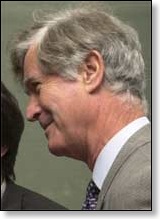
| | | |
| | SPEAKERS | |
| | | |
| | | |
| | | |
| | | |
| | Commission Communication to the Council and the European Parliament | |
| | | "Towards greater efficiency in obtaining and enforcing judgments in the European Union" |
| | | |

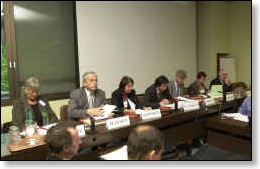
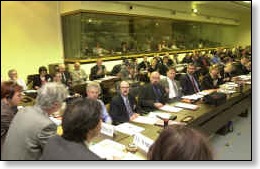
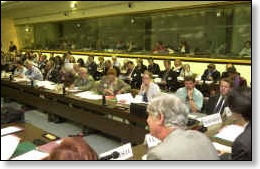
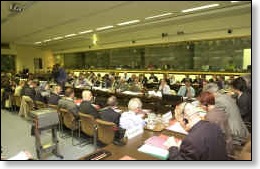
First Meeting of the EU Forum on Organised Crime Prevention.
Brussels – 17/18 May 2001
Opening speech by Mr Fortescue
Ladies and Gentlemen,
it is a great pleasure for me to welcome you, in presence of State Secretary Ms. Rennerstedt , to this first Forum for the prevention of organised crime. My hope is that it will come to be seen as a new landmark in the building of a comprehensive European strategy to combat crime.
The idea that organised crime, like so many other evils, ancient and modern, can and should be combatted through prevention as well as repression has only relatively recently been recognised at the level of the European Union. That is not to say that all Member States have been unaware of the role that prevention can play. I am thinking in particular of Sweden which has long championed the idea. But the real break through at EU level can probably be traced to the period which led up to meeting of Heads of State and Government at the Tampere European Council. It was there that in this as in many other areas of Justice and Home Affairs that the need to give an impetus to prevention efforts at national and European level was recognised at the highest level. Building on the success of preventive experiments and the acknowledgement that combatting crime and particularly organised crime required innovative countermeasures, European leaders agreed that the debate on prevention which hitherto had been essentially national, should now be also conducted at European Union level. A succession of expert and high level meetings, from Stockholm in 1996 to Prahia da Faleisia in 2000 and Sundsvall in February this year, has led to the emergence of three important axioms which should underpin future work at EU level:
a balanced approach mixing prevention and repression has shown its effectiveness by comparison with purely repressive actions;
any strategy must not only be reactive but also anticipative. It must also be evolutive to adapt to the evolution of the different forms of criminality;
finally, and of particular relevance to this Forum, experience shows how important it is for the public authorities to involve the private sector and, more generally, civil society, to ensure the relevance and coherence of the initiatives taken to combat crime in all sectors addressed.
The Commission would like to offer particular congratulations to the Swedish Presidency for its crucial part it has played in adding impetus to prevention issues at European level. The next JHA Council at the end of this month is scheduled to acknowledge the first results of this work when it will be invited to decide as the creation of a European network on crime prevention. Inspired by a joint initiative from France and Sweden, this network will deal in priority with urban criminality, youth and drug related crime. We also hope the Council will adopt the Commission’s proposal for a new EU financial programme, Hippocrates, to fund European wide prevention projects, as called for at Tampere. This new programme is constructed to complement existing ones, notably the FALCONE programme which had been established to support the implementation of the recommendations of the 1997 EU Action Plan against organised crime. It is intended also to give the financial impetus necessary for the development of a stronger prevention dimension in the EU strategy against crime.
Having ensured that the prevention policy is addressed at all the appropriate levels, including the European level which is particularly relevant when dealing with organised or transnational crime, we must also ensure that the debate is open to all partners who have a contribution to make and want to make it.
Linking in partnership the main non-governmental players in crime prevention with public authorities, with a view to developing crime reduction methods, and particularly techniques to reduce opportunities for criminals, was identified as a central issue by the Commission in its Communication on crime prevention. This analysis was further fine-tuned when the Commission, together with Europol, examined possible proposals to promote prevention of organised crime in future work at EU level as requested by the Council in its Resolution of 1998 on the prevention of organised crime. One of the major messages which the Commission would like to take away from this analysis is that partnership between those most concerned in the battle against the proliferation of organised crime in our economic and societal existence will have a central role to play if the considerable efforts which the European institutions and bodies are making to fight organised crime are to be effective.
That is why the Commission attaches such importance to associating all partners in working out countermeasures to ensure that our strategy against organised and economic crime is, first of all - and as required by both the subtlety and the scale of the phenomenon – multidisciplinary ; secondly, addresses the right questions at the right time; and thirdly, comes up with solutions and clear ideas on the most appropriate levels for their implementation, be it European or national, in the public or in the private sector, and using the instruments of law and self regulation.
Ladies and Gentlemen,
The European Forum for the Prevention of Organised Crime which is gathering today for the first time has been set up to support this dynamic. I am glad to see that, as demonstrated by your presence, it has raised interest and support in the wide spectrum of actors determined to combat organised crime. Happily, this support comes as no surprise to me, as previous opportunities to meet representatives of the civil society, or of specific concerned sectors, had convinced us that such a proposal would meet your expectations. The impressive attendance at the hearing organised by the Commission in March on the basis of its Communication on cybercrime had already demonstrated the interest of the private sector in this type of démarche.
We hope that the process we are initiating today at European level will be mirrored by and benefit from similar processes launched at national level. The Forum will meet regularly to discuss organised crime and economic crime related topics and further examine how civil society, business, researchers and certain "key professions", together with criminal justice and other relevant public departments, can contribute to preventing organised criminal activities. Furthermore the Forum will dovetail with the work of the future European Network for Crime Prevention.
This Forum should be seen as a platform open to all prevention players. It has the chance to become a major source of ideas on organised crime prevention issues, offering advice on upcoming threats and possible priorities for actions, and supporting innovative pilot projects. The core idea underlying this initiative is that any effective crime prevention policy requires the commitment of the whole society.
We know that one of the challenges raised by organised criminality is its elusive character. It is difficult to quantify, sometimes because it is difficult to identify sometimes because of a lack of available information some of which only victims have. This makes a complete picture of the phenomenon difficult. And without a precise picture, counter-measures can be inadequately focused or come too late. The Forum should therefore be a new channel for exchanging information, and pooling resources.
We also know that organised crime often needs to exploit legitimate channels for its purposes. It does not hesitate to use or abuse inadequately alerted or prepared entrepreneurs, bankers, public officials, indeed any individual who may unwittingly participate in the commission of an organised criminal activity. Therefore an important aspect of the Forum will be to help to raise awareness of crime prevention among groups and sectors at risk, and to promote a "preventive culture".
More generally, the proposal to establish this Forum is in long with the Commission’s wider efforts to ensure that actions that can impact on crime property consider and duly take into account the various concerns at stake. To that extent it links up with the Commission’s efforts in the field of governance, and first of all in its own performance. Good governance, meaning transparency, participation and liability in the decision-making process, requires decision makers actively to seat a greater participation of all actors in their efforts to confront organised crime and economic crime. But it also constitutes an invitation to these actors to seize the opportunity and to assume their responsibilities. Only then could we develop appropriate and effective preventive strategies. Success will be, at least in part, measured by the initiatives and commitments which will come out of this Forum.
Ladies and Gentlemen,
The scale of the endeavour needed to deal with the multiple facets and types of criminal activities will require sustained involvement from all of us, and good organisation of our work together. Let me end by repeating my hope that this first European Forum will lay the foundations for a more systematic and structured co-operation between partners to shield our society against crime, and will lead to innovative and comprehensive answers to the existing and future threats for the benefit of all law-abiding citizens of our European Union and beyond.


